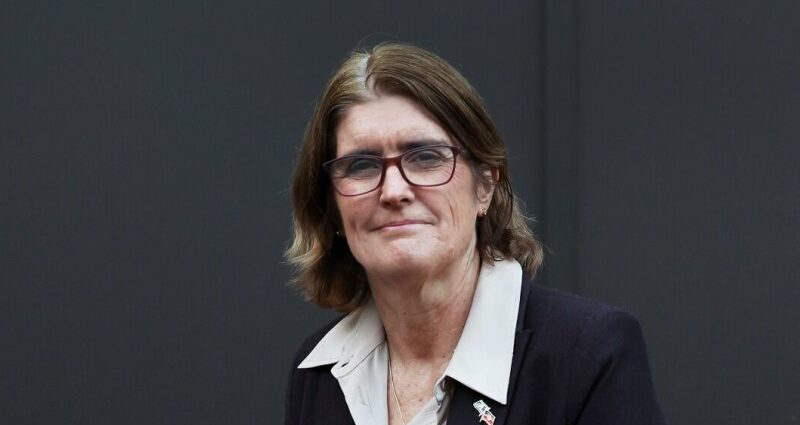Save articles for later
Add articles to your saved list and come back to them any time.
The Reserve Bank has spoken, and interest rates are up another 25 basis points. It’s a bad decision.
I am one of 32 “experts” who are surveyed each month for their prediction on the next monthly rate movement, and this month I was in the minority; just 30 per cent of us forecast no change. It was not so much a prediction from me as it was a fervent wish. The last thing we need is another rate rise.
Michele Bullock, deputy governor of the Reserve Bank of Australia (RBA).Credit: Bloomberg
Central banks around the world are trying to combat inflation with one blunt instrument: interest rate control. They have been sold on the idea that inflation should be kept within a specific target band, and all their efforts are directed to keeping it there, but the problem is that it’s a concept with no statistical validity.
Many people are flabbergasted to learn that the Reserve Bank of Australia’s 2 per cent target was created out of thin air in 1990 by the Reserve Bank of New Zealand, and has no basis in any sort of academic study whatsoever.
In fact, it appears to have come from an off-the-cuff remark made during a TV interview with Roger Douglas, New Zealand’s finance minister at the time, who said that he’d “ideally” want an inflation rate between 0 per cent and 1 per cent.
The 2 per cent you hear today as a target was originally intended as a “boundary”, and nothing more, for inflationary bias, which was estimated to be just 0.75 per cent at the time. Following New Zealand’s lead, other countries, including Australia, Canada and England, adopted the 2 per cent inflation target. The US Federal Reserve officially adopted the 2 per cent inflation target in January 2012 under the leadership of then-chairman Ben Bernanke.
[Governments] are exacerbating the problem. They [have] massive infrastructure projects everywhere … and migrants arrive at a rapid rate.
The RBA is in challenging territory. It wants to see inflation drop, but increasing the loan repayments of average families will not affect inflation. We have imported inflation because of the wars in Ukraine and the Middle East. There are massive challenges in the building industry due to shortages and rising costs: architects tell me their developer clients who have approvals are not prepared to start building because the build costs are potentially so high the deals no longer work.
And what are governments doing? They are exacerbating the problem. They are pouring money into the system with massive infrastructure building projects everywhere and keeping demand high with migrants arriving at a rapid rate.
This puts huge pressure on the already overcrowded rental market. We now have the ridiculous situation where central banks are putting the brakes on, while the rest of the government does everything they can to keep their foot on the accelerator.
Despite 12 previous rate hikes in the current cycle, the anti-inflation battle is far from over. Last month the latest Australian inflation figures were released for the September quarter, with mixed news. Quarterly inflation rose from 0.8 per cent to 1.2 per cent, while the annual rate (rolling 12 months) fell from 6.1 per cent to 5.4 per cent. It’s going to be a slow road to the RBA target.
JB Hi Fi are among big companies to report declining sales.Credit: Will Willitts
Certainly, the rate rises in the last cycle have dampened the enthusiasm of shoppers – companies like Harvey Norman and JB Hi-Fi report declining sales, but they have had little effect on the big picture. Our inflation is structural.
A big problem is unemployment. Job markets are still very tight here and around the world: wages are rising everywhere. Rising wages without an equivalent rise in output just push prices higher, and feed the inflationary spiral.
So where to from here? It’s anybody’s guess. The Reserve Bank can’t keep crushing working families and small businesses in a futile attempt to stop inflation but they no sign of stopping. Sadly, I feel things will get much worse before they get better.
Noel Whittaker is the author of Retirement Made Simple and other books on personal finance. Email: [email protected]
- Advice given in this article is general in nature and is not intended to influence readers’ decisions about investing or financial products. They should always seek their own professional advice that takes into account their own personal circumstances before making any financial decisions.
For expert tips on how to save, invest and make the most of your money, delivered to your inbox every Sunday, sign up for our Real Money newsletter here.
Most Viewed in Money
From our partners
Source: Read Full Article



